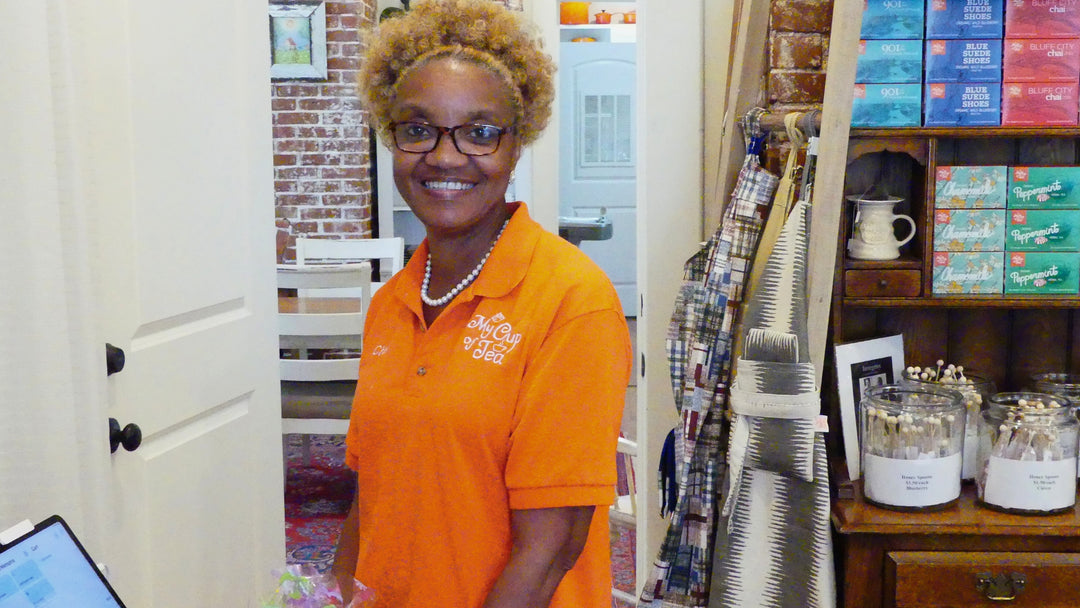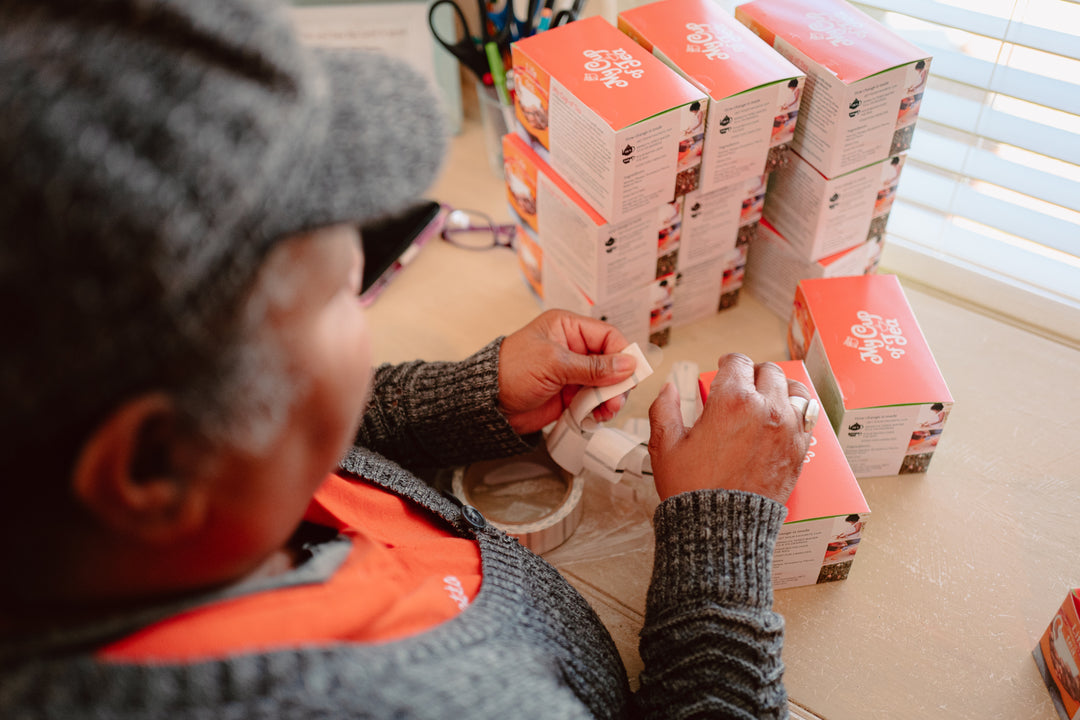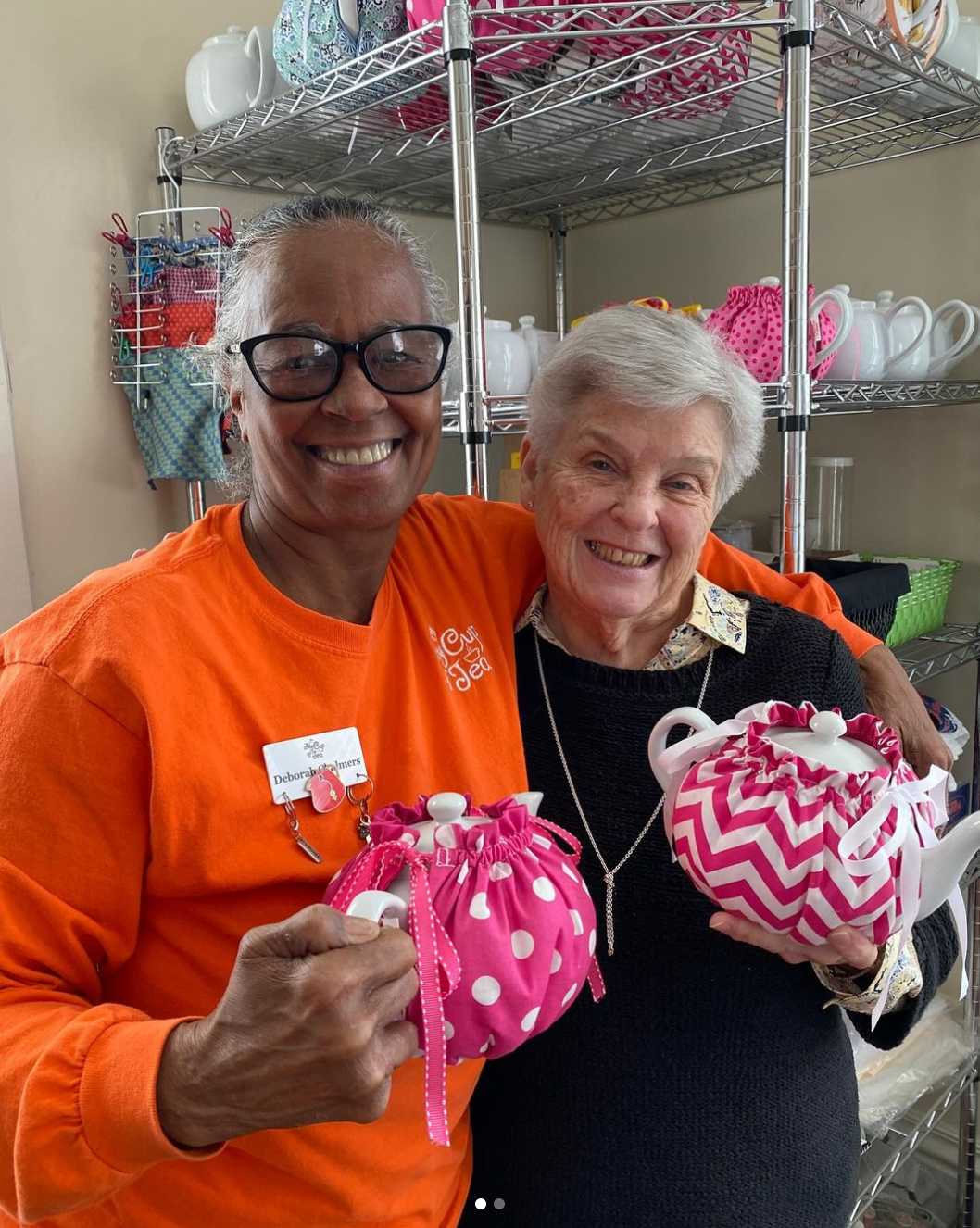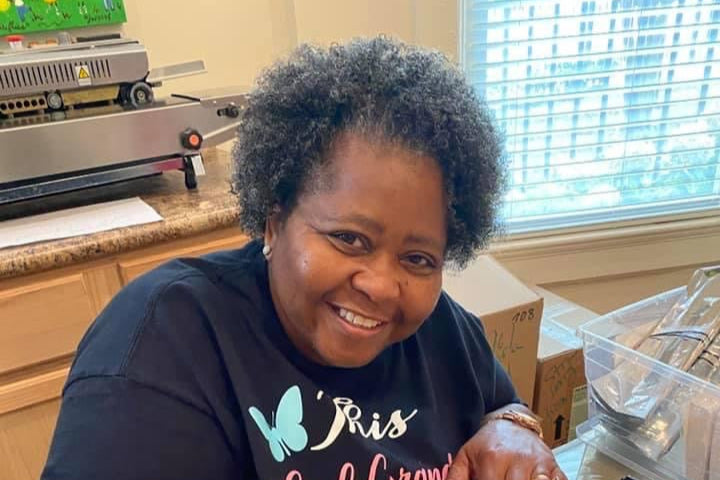
What's in the Cup.
“I would like to meet with you at the House today,” the text read.
I was slightly perplexed by the message because it seemed last-minute, and I knew of no impending crisis requiring my presence in Orange Mound. I replied that my day was full, but that I could meet soon.
Several minutes passed, and another text bubbled up on my phone screen.
“You’re bringing lunch to the House today, right?”
I instantly felt nauseous. Despite months of bringing lunch to the House on the fourth Thursday of every month and a conversation with my wife just a couple of days before about what I would prepare for the ladies, I forgot. It was almost 11:30 at that point.
Providentially, Carey had prepared an eggplant parmesan with our garden produce and graciously offered to bring it for lunch. I was relieved, ashamed, embarrassed, and immensely grateful for the grace I was shown.
It was no great tragedy, really. The Earth would continue to spin, the Sun would rise, and everyone at the House would have something to eat. Yet, I was grateful that not a single person at My Cup of Tea would judge my worth or ability on the basis of this mistake – or a lifetime of mistakes, for that matter.
There is no questioning the fact that I have made many more consequential mistakes in my life – mistakes that cost money, that damaged my reputation, and that harmed others physically or emotionally. I would like to believe that I have far more “good works” on my stats sheet than “mess ups”, but such a claim is dubious at best. And even if it were true, mistakes in our culture wield far more influence than successes.
The tiniest faux pas elicits a visceral response from many of us. The Starbucks barista who clocked in before 5 a.m. adds only two pumps of vanilla to our latte, instead of three, and most are not kind about letting her know. And with star ratings coveted by businesses, we are quick to rate the establishment one star, often with little or no explanation. If that barista or her coworker fails again, then that location and potentially the entire enterprise earns a tarnished reputation in our minds, and in the minds of those who will listen to us, for years to come. We are not only a “what have you done for me lately” society, but we are a “what have you done for me correctly” society.
Collectively, if we are so quick to pin on the scarlet “A” for a sleepy barista or a stressed out Dad who’s late for work and cuts us off in traffic, then how low is our tolerance for a woman who gave birth to a child in jail because she was arrested for credit card fraud? Is there any understanding in us for one who has been in drug rehab but still struggling to get clean? Can we accept a woman who engaged in prostitution to make ends meet, or another who stays with an abusive partner despite the risk to her children?
One of the most critical components of the My Cup of Tea House is that all are welcome to shop, learn, study, and, if you are an Orange Mound woman, apply for a job. However, the moment you step onto the property, you have entered a judgment-free zone. Value is not assigned based on how few mistakes you have made or how serious someone determines those mistakes were.
For mistakes that come to light while at the House, there is accountability, but not condemnation. In one instance, one of the ladies admitted to stealing diapers from a previous employer when she learned of an active warrant for her arrest. A sister took her under her wing, drove her to 201 Poplar, came back the next day to drive her home, and the woman faced a judge who mercifully granted probation. While waiting for the adjudication, she worked at The House and was joyfully welcomed back when the case was closed.
Many of us are quick to quote Luke 6:37, “judge not, and you will not be judged…” when someone calls out our mistakes. We forget the rest of the verse that goes on to say, “…condemn not, and you will not be condemned. Forgive and you will be forgiven.”
Jesus did not excuse or ignore the mistakes of the outcasts of society with whom he associated, or of the religious and political elite, for that matter. In one of the most dramatic scenes of Scripture, a woman caught in adultery is brought before Jesus by those religious elites. The law required that one caught in adultery be stoned to death. Yet, Jesus wrote something in the dirt and said, “Let him who is without sin among you be the first to throw a stone at her,” – John 8:7.
The story doesn’t end there with Jesus saying, “Go about your business.” Instead, he says, “Neither do I condemn you: go, and from now on sin no more,” – John 8:11.
Jesus did not determine the woman’s worth based on her sins. He assured her that she was not condemned and urged her not to make the same mistakes.
I am reminded of the teacup chandeliers that hang throughout the House. They are fashioned with broken, cracked, and stained teacups that are emblematic of all who work and serve there. They may be damaged, but they are beautiful and have purpose. And if any one of us were handed one of those cracked or stained cups full of our finest tea, it is my prayer that our senses would dwell, not on the outside of the cup, but on what is in it.























